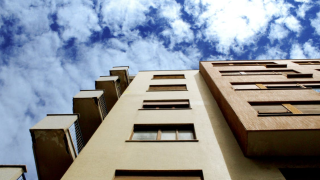
A ballot measure to partially dismantle California’s longtime system of tying property taxes to the last sales price trailed Wednesday but the outcome remained uncertain.
No votes on Proposition 15 were ahead by 3.5 percentage points with about 11.6 million votes counted, a wider margin than Tuesday night.
The No on Prop 15 campaign wrote supporters on Wednesday that “trends continue to be in our favor” but that the outcome may be unknown for weeks. Supporters kept a low profile after saying Tuesday night they were confident they would prevail as more votes were counted.
The measure would reassess commercial and industrial properties every three years. Residential property would remain under current rules.
Since a 1978 ballot measure — Proposition 13 — sparked a national outcry for tax cuts and helped pave Gov. Ronald Reagan’s path to the White House, California has limited tax increases to 2% a year for inflation until a property is sold. With prices climbing at a much higher rate, taxpayers who have held homes and businesses for many years pay far less than what the market value would determine.
Supporters said the “split-roll” system would go a long way toward fixing inequities that shield wealthy corporations, depriving property tax proceeds for schools and local governments. Opponents called it a massive tax increase that will cripple businesses in a pandemic-wracked economy.
Another ballot measure that would allow homeowners who are 55 and older, disabled or wildfire victims to transfer a primary residence’s tax base to a replacement home was ahead Wednesday. It was also too early to call, with yes votes ahead by about 3 percentage points.

